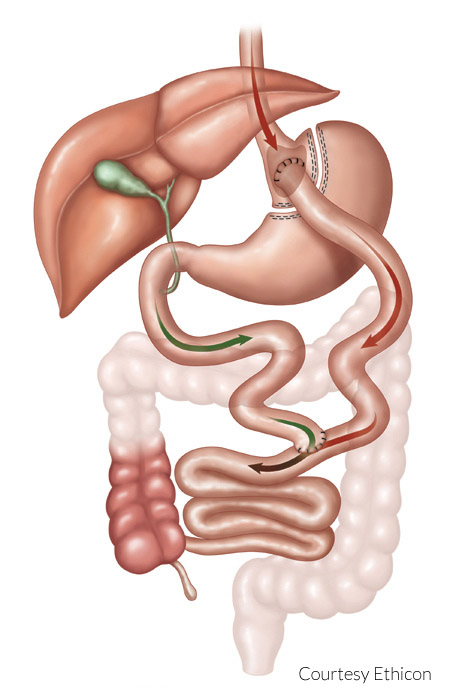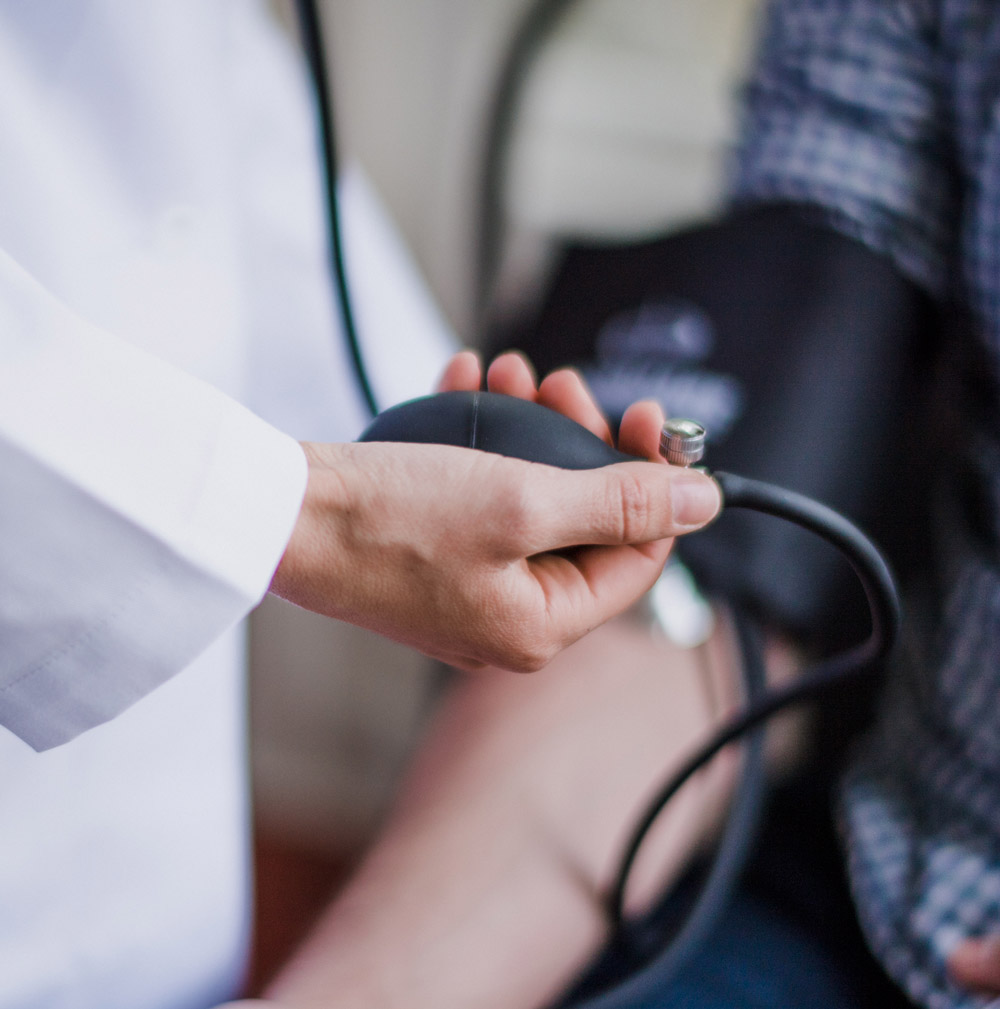Bariatric Surgery
Bariatric surgery, also known as weight loss surgery, not only helps with losing weight but also in the treatment of medical conditions caused by obesity, or excess weight. Surgery for weight loss and the treatment of obesity has been around since before the 1950’s, however current technology and the advent of laparoscopic surgery has made bariatric surgery safter than ever for the treatment of obesity and weight-related medical problems.

Roux-en-Y Gastric Bypass
There are two parts to this procedure – the creation of a small stomach pouch
and the creation of a Roux-en-Y intestinal connection. The procedure is done
mainly laparoscopically, and rarely through an open incision. After the surgery,
food (following the path of the red arrow) passes from the stomach pouch into the jejunum, bypassing the duodenum.
This reduces some absorption of calories and nutrients, though currently
research has shown that bariatric surgery works mainly from altering the balance
of gut hormones, which decreases the sensation of hunger as well as the set
weight that the body tries to maintain.
Advantages
Longevity: Gastric bypass surgery has been performed since the 1950s, making it the oldest continuously performed surgical procedure and the most extensively studied.
Effective Weight Loss: The Roux-en-Y Gastric Bypass (RYGB) demonstrates a good track record in maintaining long-term weight loss, with patients often achieving 50-60% Excess Weight Loss.
Medical Problem Resolution: RYGB has a strong record of resolving various medical issues associated with obesity.
Heartburn Treatment: It is considered one of the most effective procedures for addressing heartburn.
Disadvantages
Digestive Issues: After gastric bypass surgery, patients are more susceptible to digestive problems, including dumping syndrome (diarrhea after carbohydrate-rich meals) and reactive hypoglycemia (low blood sugar and its resulting symptoms – tremors, palpitations, cold sweats, dizziness, fatigue).
Potential for Internal Hernias: The procedure’s intestinal rerouting creates new abdominal spaces, which, although initially closed, may potentially reopen over time, causing internal hernias. Correcting this issue often requires additional surgery.
Marginal Ulcers: The small bowel connected to the small stomach pouch is less resilient to stomach acid than the stomach lining itself. Factors like smoking, NSAID use, or alcohol consumption can lead to ulcers at that location, known as marginal ulceration.
Things to Know
Appropriate for BMI 35-50 kg/m²: Gastric bypass surgery is an effective option for individuals with a BMI (Body Mass Index) between 35 and 50 kg/m², especially those who have medical issues related to their excess weight.
Risk of Malnutrition and Vitamin Deficiency: There is a slight risk of malnutrition and vitamin deficiencies associated with gastric bypass. However, these issues are typically mild and can be corrected with oral vitamin supplements.
Not Suitable for Certain Medications and Lifestyle Choices: Individuals who require NSAID medications for conditions like arthritis or other inflammatory disorders, or those who are likely to engage in frequent smoking or alcohol consumption in the future, should reconsider pursuing this surgery due to the elevated risk of developing marginal ulcers.
Better Health Care is Our Mission
Phone:
Emergency Hotline
In case of a medical emergency, please dial this number immediately: 911
Bakersfield Office:
8311 Brimhall Rd. Building 1900, Suite #1901 Bakersfield, CA 93312

